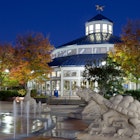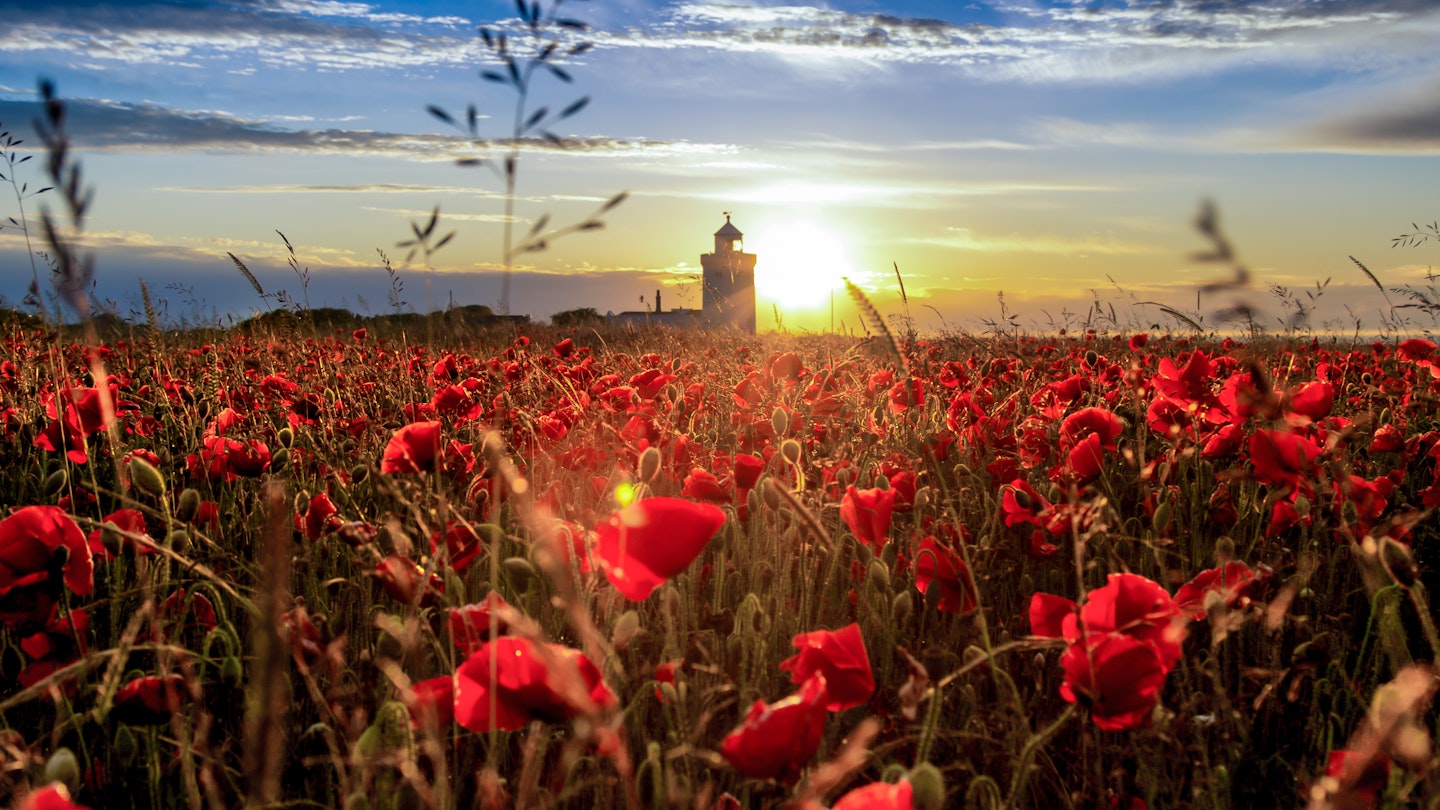
Dover's White Cliffs bloom with poppies and buzz with skylarks after rewilding

Jul 10, 2020 • 2 min read

Dame Vera Lynn fronted the appeal to rewild the area ©Matt Hayward/National Trust
The White Cliffs of Dover are blooming thanks to a major rewilding program. A series of meadows on top of the iconic chalk cliffs are alive with bright poppies as well as skylarks and peregrine falcons.
For 70 years the Wanstone meadows were intensively farmed, depleting their wildlife. But in 2017, a major fundraising appeal, fronted by Dame Vera Lynn, bought the 70 hectare (178 acre) area for the National Trust. A wildflower and grass mix was sown and – helped by a wet winter in 2019 – the meadows have sprung to life this summer, providing a habitat for butterflies and endangered birds and a beautiful backdrop for walkers along the clifftop.

“To see the fields returning to their natural state, covered in poppies and ringing with the sound of skylarks, is really heartening,” said Virginia Portman, General Manager at the White Cliffs. “It’s a tribute to everyone who supported our campaign and helped us buy back this landscape for the nation.” The White Cliffs tower 110m (350ft) over the sea and are England’s closest point to France. They’ve become a potent symbol of the nation as well as a popular tourist attraction.

Plants now growing include common vetch, bird’s-foot trefoil, crimson clover, yellow rattle, lady’s bedstraw, ox-eye daisy and meadow buttercup. Birds such as larks, meadow pipits, corn buntings and falcons have been spotted. Marbled white and red admiral butterflies are already present, and it’s hoped Adonis blue and dingy skipper butterflies will join them this summer.

The involvement of Lynn, who died last month, is particularly fitting. Her version of the song “(There’ll Be Bluebirds Over) the White Cliffs of Dover”, with its celebration of natural beauty and hope for a better tomorrow, was hugely popular during WWII.
The best way to experience the cliffs - other than the deck of a cross-channel ferry - is to walk a stretch of the England Coast Path along the clifftop east of Dover. The bracing route passes the meadows, and historic South Foreland Lighthouse – the site of the world’s first international radio transmissions – before finishing at St Margarets Bay. The lighthouse is currently closed due to COVID-19, but the White Cliffs car park is open (at reduced capacity) and toilets are available. The path can be freely accessed at any time.
You might also like:
Call of nature: 9 rewilding schemes you can visit in the USA
Back to nature: 8 rewilding projects you can visit in Europe
Explore related stories






 Destination Practicalities21 local tips to know before traveling to England
Destination Practicalities21 local tips to know before traveling to EnglandNov 21, 2024 • 9 min read



